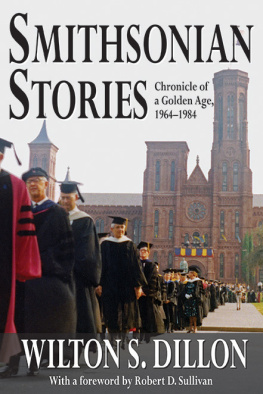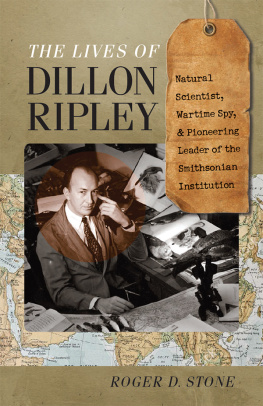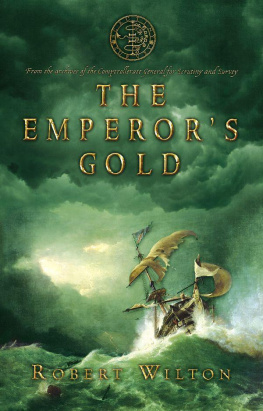Originally published in 1968 by Mouton
Published 2003 by Transaction Publishers
Published 2017 by Routledge
2 Park Square, Milton Park, Abingdon, Oxon OX14 4RN
711 Third Avenue, New York, NY 10017, USA
Routledge is an imprint of the Taylor & Francis Group, an informa business
Copyright 2003 by Taylor & Francis
All rights reserved. No part of this book may be reprinted or reproduced or utilised in any form or by any electronic, mechanical, or other means, now known or hereafter invented, including photocopying and recording, or in any information storage or retrieval system, without permission in writing from the publishers.
Notice:
Product or corporate names may be trademarks or registered trademarks, and are used only for identification and explanation without intent to infringe.
Library of Congress Catalog Number: 2003042628
Library of Congress Cataloging-in-Publication Data
Dillon, Wilton.
Gifts and nations : the obligation to give, receive, and repay / Wilton S. Dillon ; with a new preface by Mary Catherine Bateson, a foreword by Talcott Parsons, and a new afterword by the author.
p. cm.
Originally published: The Hague ; Paris : Mouton [1968].
Includes bibliographical references and index.
ISBN 0-7658-0545-6 (pbk. : alk. paper)
1. Economic assistance, AmericanFrance. 2. Economic assistance Psychological aspects. 3. GiftsPsychological aspects. 4. International relationsPsychological aspects. I. Title.
HC276.2.D55 2003
338.91'73044'09044dc21 2003042628
ISBN 13: 978-0-7658-0545-4 (pbk)
To Alfred Kroeber, Margaret Mead, and Claude Lvi-Strauss
whose many gifts are traveling in my kula ring
Reading Gifts and Nations is very much like looking into what Barbara Tuchman called a distant mirror. Wilton Dillon did the research on which this study is based in the 1950s. A great deal has changed since then, both in world affairs and in anthropology, yet this book resurfaces at a time when many of the issues it raised are once again coming into prominence. Dillon uses French reactions to the Marshall Plan to explore more general, and still highly important, issues related to international giving, material and intellectual, issues that are both particular and universal. Today, in a time of intensifying exchange and interaction between nations, with all the benefits and dangers that this involves, we are in urgent need of increased understanding of how such interactions result sometimes in friendship and sometimes in resentment and antagonism.
The Marshall Plan, through which the United States supported European recovery after World War II, was a shining landmark in the history of international relations. This study is particularly focused on the transfer of ideas about the organization of industry through technical assistance programs. Op eds and letters to the editor continue to call at regular intervals for a new Marshall Plan, but even with the ending of the Cold War, most aid is given in direct relation to strategic goals. Because of the great disparities between developing and developed nations, the ambivalence about aid felt by both donor and receiver nations that Dillon describes continues, but today it is highlighted by a sharpened internal debate in many nations even about aid given to fellow citizens in need. The United States today is intensely concerned, in the aftermath of the Cold War, with propagating ideas and instructing the world on the benefits of capitalism, free trade, and democratic government. As the only remaining superpower, all of Americas partnerships are out of balance, with the United States expecting to lead and teach. The United States lacks sensitivity to the responses of other nations as it claims roles associated with seniority, greater wisdom, or greater virtue - or in some cases past oppression.
We live today with a primary rhetoric of competing rights. This is a work that deals with obligations, offering a useful balance, especially since it deals with interlocking, reciprocal obligations. There are voices today that argue the obligation to give, but few that recognize that giving is but one of a triad, complemented by an obligation to receive and an obligation to repay. It is the fulfillment of this interlocking set of obligations that weaves the social fabric of reciprocity and interdependence, while receiving gifts without a means of material or symbolic reciprocation is potentially demeaning. Dillon explores the French perception that the Americans they dealt with half a century ago failed to acknowledge their intellectual contributions - a failing he himself gracefully addresses by analyzing the entire issue through the work of Marcel Mauss, a follower of Durkheim. This gives the book a very contemporary feel, for in the interval since the 1960s a whole range of French theorists have become important to American intellectuals. One thinks first of Mausss own intellectual heir, Claude Levi-Strauss, but many others come to mind: Derrida, Foucault, Braudel, Bourdieu, Lacan, and so on.
Another factor that gives this book a contemporary feel is the renewed interest in qualitative methodologies, especially in intensive work with the narratives of individual informants, both in anthropology and in cultural studies. Dillon began his interest in gift exchange in Japan, where he served on the Civil Information and Education staff of General MacArthur during the Occupation. His reading of Ruth Benedicts The Chrysanthemum and the Sword inspired him to become an anthropologist as he found her hypotheses relevant to his work of interpreting Western civilization to the Japanese. When he left Berkeley for Columbia to study with Alfred Kroeber and Margaret Mead in 1951, Mead encouraged him to explore the relevance for France of some of Benedicts ideas about the Japanese concept of obligation. Building on techniques developed at the Columbia University Research in Contemporary Cultures, Dillon worked intensively with a French manufacturer. Dillon also met with his companions on delegations to the United States, watching and listening as the Frenchmans appreciation for what he was learning from the U.S. was accompanied by satisfaction at the anti-Americanism of de Gaulle and at expressions of French independence.
Interest in this tradition has just now been beginning to revive, but meanwhile anthropologists continue to be largely unavailable for thinking about international relations. It is to be hoped, as the United States gives - or offers - or demands the role of leader, that it will also discover the balancing obligations - to receive guidance, recognizing alternative points of view and the wisdom of other civilizations.
Mary Catherine Bateson














